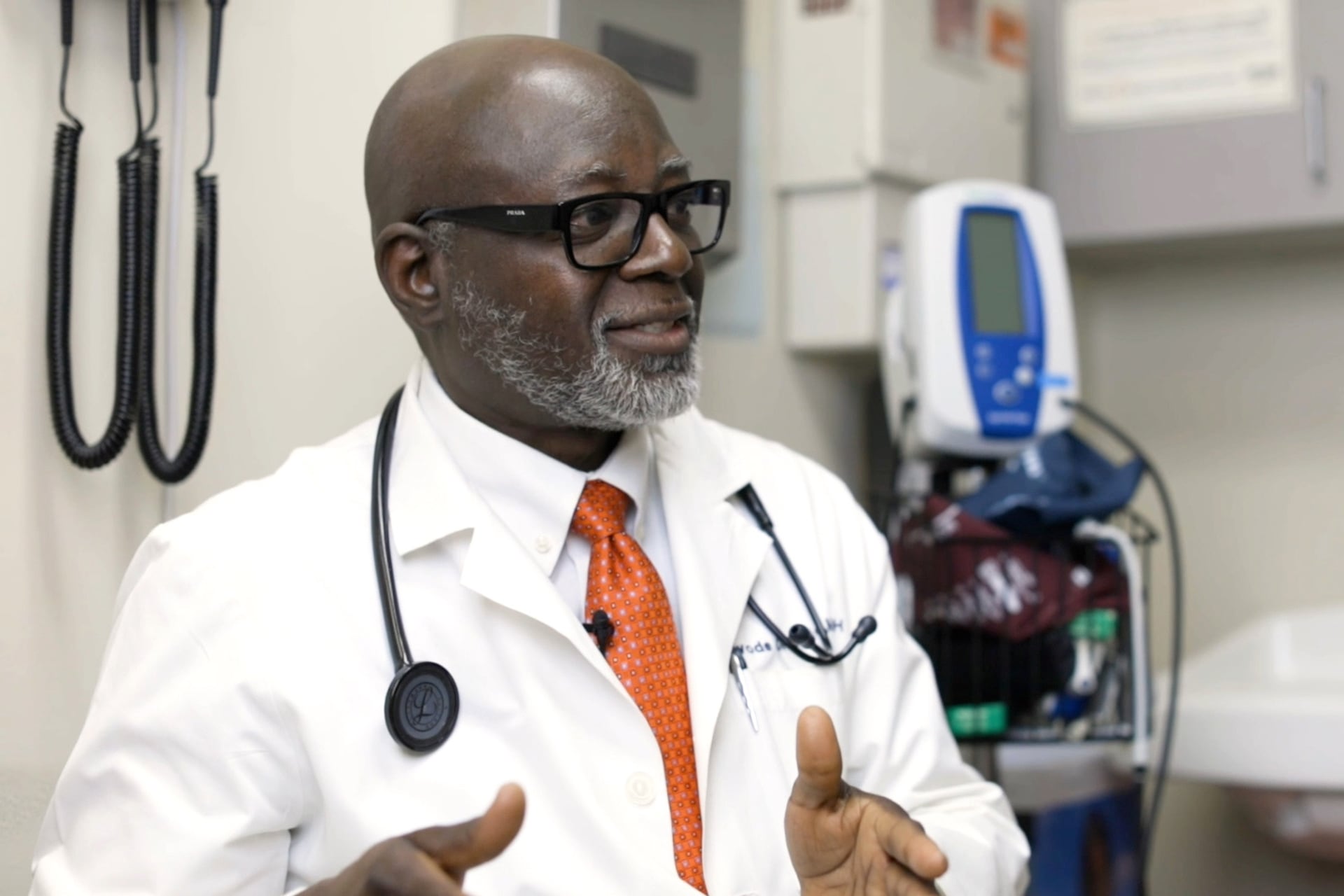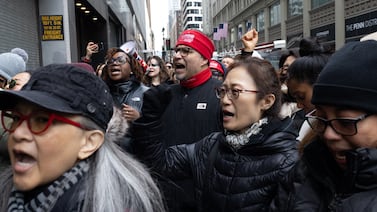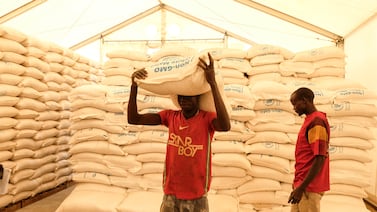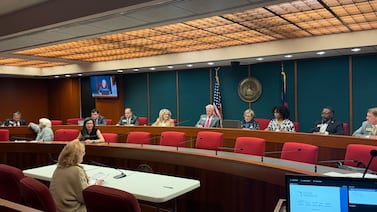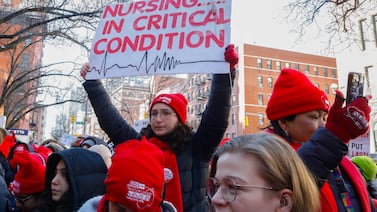This story was part of Healthbeat’s live storytelling event, “Aha Moments in Public Health,” held Nov. 3 at Manuel’s Tavern in Atlanta. Watch the full show here. Sign up to receive Healthbeat’s free Atlanta newsletter here.
In the tapestry of life, there are moments that stand out like vibrant threads, weaving together experiences that shape our understanding of purpose and community.
One such moment for me was the day I discovered the profound connection between the Japanese concept of ikigai — a reason for being — and the African philosophy of Ubuntu, which emphasizes our shared humanity.
This realization came to me in a small, unassuming community health center, where a simple act of kindness resulted in a chance encounter that transformed my perspective on the impact of my work.
It was a warm muggy afternoon in the outskirts of Port au Prince, Haiti. I was at a local community health center, a place that served as a refuge of hope for many in the surrounding neighborhood. As I entered the compound, I was greeted by the warm smiles of children playing and the gentle hum of conversations among countless adults.
I had been involved in various community service projects around the world, but that day felt different. It had been a few years after the 7.0 magnitude earthquake that left tens of thousands dead and millions homeless. I was there to help organize a health fair, but little did I know that I was about to experience a pivotal moment in my life.
As I sorted through boxes of medical supplies that we had acquired from MedShare International in Georgia, I noticed an elderly woman sitting alone at a table, her hands trembling slightly as she sorted through a box of food items. Her name was Mama Guerline, a widow who had lived in the community for decades. I approached her, offering a smile and a helping hand. We began to chat, and she shared stories of her late husband, and her late children, all lost in the 2010 earthquake.
She talked about the challenges she faced living on rations on a day-to-day basis. Despite having extraordinarily little left to her name, she was determined to do her part to help rebuild her torn nation. She believed her life had been spared during the earthquake so she could be a messenger of hope and change. She did not have any sources of funding, but she had a heart of gold and the determination of steel.
As she spoke, I felt a deep sense of empathy wash over me.
Here was a woman whose life was filled with love and loss, yet she radiated resilience and hope. I asked her what we could do differently for her, and she stated: Do not worry about me. Instead, focus on the youth, as they represent tomorrow. She stated that the children represent the heartbeat of the broken community. If the heart failed, the community would cease to flourish.
In that moment, I realized that my work was not just about organizing health fairs, or collecting and distributing medical donations and countless resources. It was about connecting with people, understanding their stories, and recognizing the impact of our collective efforts in the bid to transform the community.
Ubuntu: ‘I am because we are’
Mama Guerline’s gratitude for the small act of kindness we offered was palpable. She expressed how the community health center had become a lifeline for her and many others, a place where she felt valued and cared for. It struck me that this was the essence of ikigai — finding purpose in serving others and contributing to the greater good. As our conversation deepened, Mama Guerline introduced me to what I then realized was the concept of Ubuntu. She explained that in her culture, the phrase “I am because we are” encapsulates the idea that our identities are intertwined with those of others.
This philosophy resonated with me, illuminating a path forward that I had not previously considered. I began to see how my work could extend beyond individual acts of service to fostering a sense of community and belonging. That day, I left the community health center with a renewed sense of purpose. What we were doing was simply not enough. The children in the community needed to go to school in order to champion the cause for tomorrow. To do that, they needed to have food and nourishment, and they also needed to have a safe environment to live and play in.
Our group of students and volunteers adopted a Creole term on that day: “Nou kapab,” simply meaning “We can.”
I understood that my role was not merely to aid but to cultivate relationships and create an environment where everyone felt seen, heard, and respected. The ripple effect of a small act of care and simply listening could transform lives, just as it had for Mama Guerline. I realized that when we invest in one another, we build a stronger, more resilient community.
How deep listening can be a catalyst for change
In the weeks, months and years that followed, I took this newfound understanding to heart. I began to engage more deeply with the people we served, listening to their stories and learning about their needs. We organized a student movement that not only provided outreach and resources but also fostered connections among community members by engaging the community and performing extensive community needs assessments.
I witnessed firsthand how these small initiatives created a sense of belonging and empowerment. People began to share their knowledge, skills, and talents, forming a network of support that transcended individual struggles. The breakthrough I experienced that day was not just a personal revelation; it was a call to action. I understood that my work could be a catalyst for change, a means to uplift others and create a healthier and more compassionate society.
The principles of ikigai and Ubuntu became guiding lights in my journey, reminding me that true fulfillment comes from serving others and recognizing our shared humanity.
Reflecting on that pivotal moment, I am grateful for the opportunity to connect with Mama Guerline and the many others who have enriched my life. Their stories have taught me that every small act of kindness has the potential to create ripples of change and transformation. I have come to appreciate the beauty of community, where we can support one another and thrive collectively.
In conclusion, my journey from ikigai to Ubuntu has been transformative. It has illuminated a path forward, one that emphasizes the importance of connection, empathy, and shared purpose. As I continue to navigate my work and life, I carry with me the lessons learned from that day – a reminder that we are all interconnected, and that our actions, no matter how small, can have a lasting impact on the world around us.
Dr. Alawode Oladele is the supervising physician and laboratory director for infectious diseases and refugee health at DeKalb Public Health, following decades in global public health. He has degrees from the Morehouse School of Medicine and the Rollins School of Public Health at Emory University.

